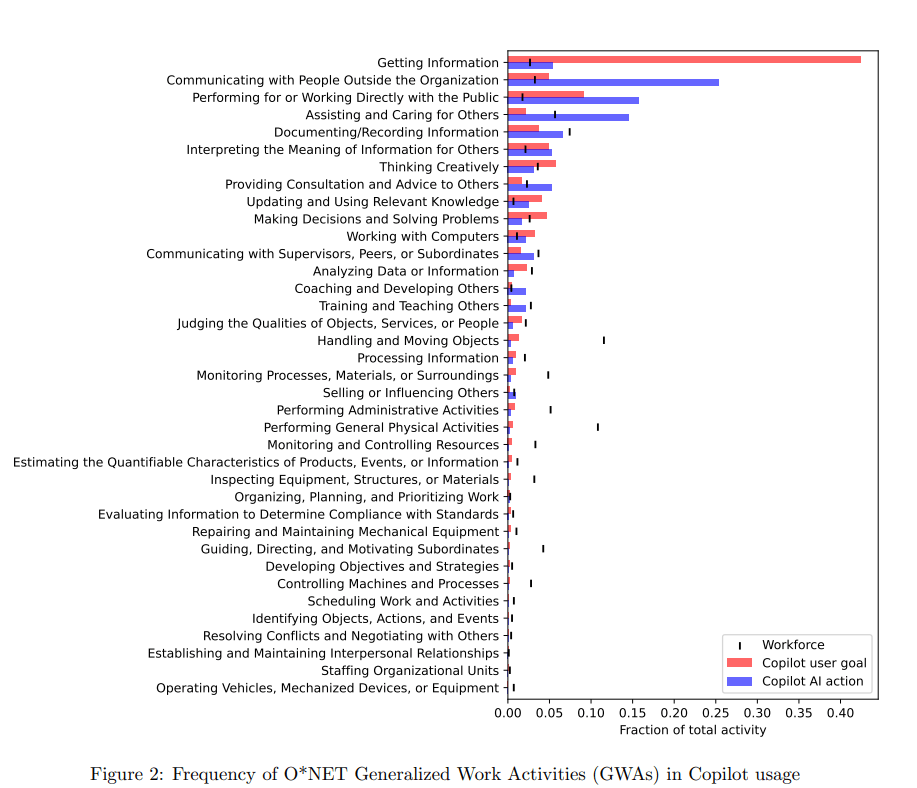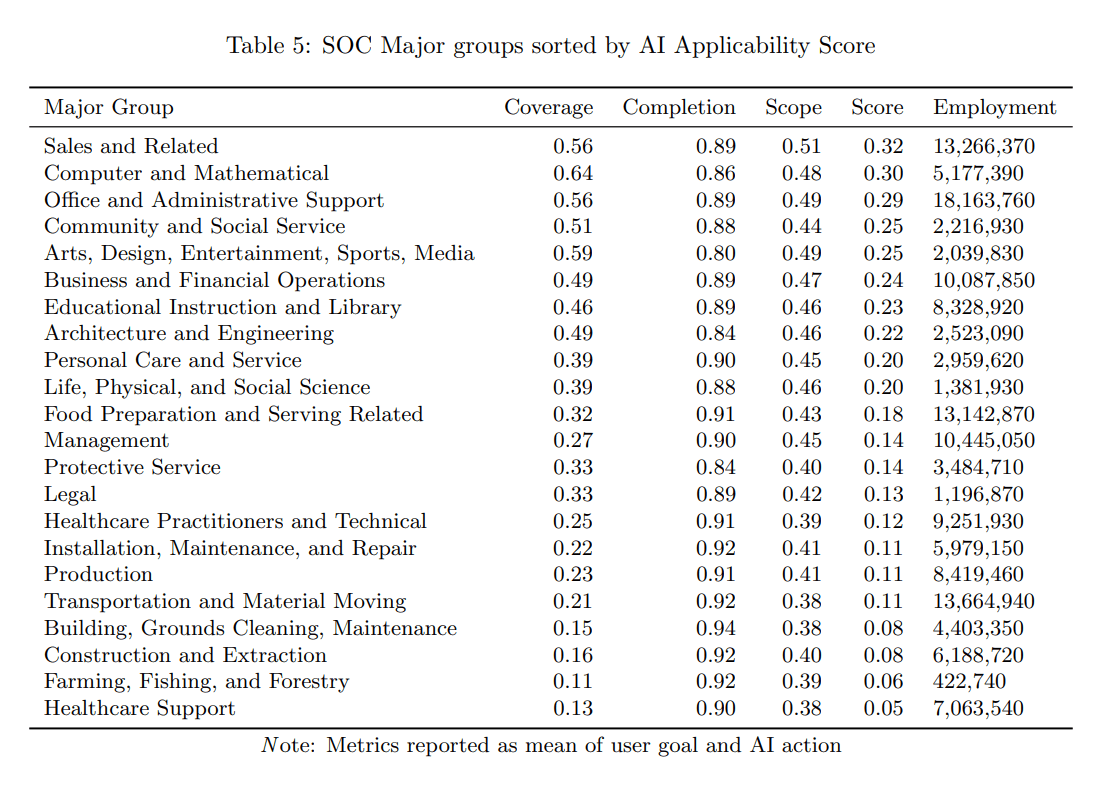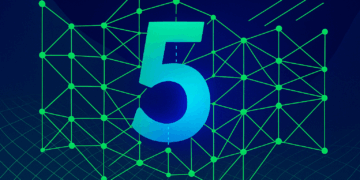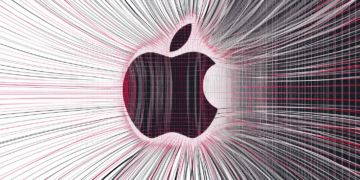A new Microsoft Research study finds that knowledge work, communication, and sales jobs are among the professions most likely to be affected by generative AI.
The “Working with AI” report highlights professions where language models have the greatest potential to shape everyday work tasks. Researchers analyzed 200,000 anonymized Bing Copilot conversations, mapping both user goals and AI actions to the O*NET database, which classifies U.S. jobs by their core activities.
A central distinction in the study is between what people want to accomplish (“user goal”) and what the AI actually does (“AI action”). For example, when a user gathers information—a typical task for journalists or scientists—the AI provides information, similar to the work of librarians or customer service representatives.
In 40 percent of cases, the user’s goal and the AI’s activity involved different sets of tasks, highlighting AI’s role as a coach or advisor rather than as a direct replacement.

The most common AI-supported tasks involve collecting information, writing and editing, and communicating ideas—areas where AI performs best, both in terms of user satisfaction and completion rates. By contrast, the system is less effective for data analysis or visual design, and it struggles with tasks that require real-world interaction or physical work, like shopping or repairs. OpenAI’s new ChatGPT Agent is designed to gradually close this gap.
Knowledge work sees the greatest impact
To measure the impact across professions, the researchers developed an “AI Applicability Score,” which combines usage frequency, success rate, and how fully AI can handle each task. The highest scores went to translators, historians, writers, media professionals, customer advisors, and salespeople. Technical roles like CNC programmers and data scientists also ranked high.
At the other end of the scale are physical jobs—caregivers, tradespeople, cleaners, and machine operators—where current generative AI tools have little impact. The study found almost no correlation between a job’s AI suitability and its pay or education level. While roles that require a bachelor’s degree are slightly more affected, the difference is minor.

The authors caution against assuming that AI capability will automatically lead to automation or job loss. In many cases, AI acts as an assistant, supporting and enhancing human work rather than replacing it. They point to the example of ATMs in banking: automation changed how people worked but also created new roles in the industry.
The study’s findings are based entirely on Microsoft Copilot usage in the U.S. and may not extend to other platforms or countries. Informal work and tasks outside standard job categories, such as household labor, were not included.














